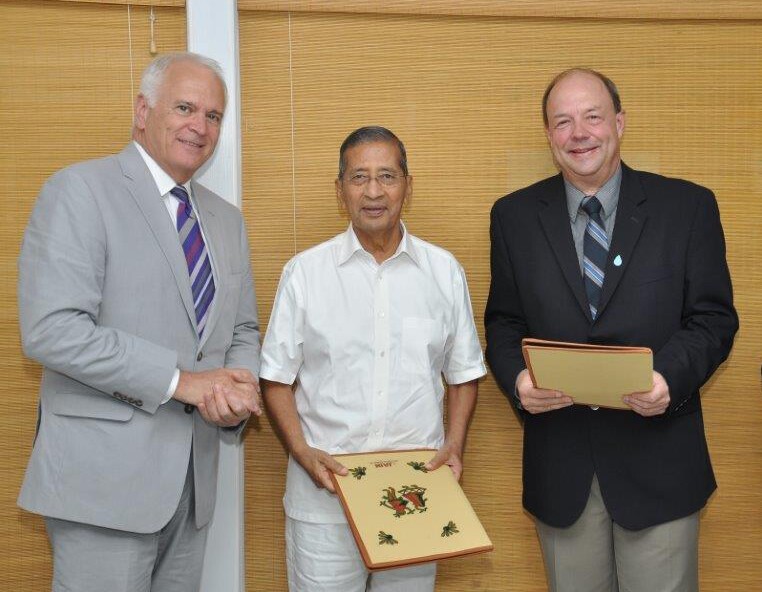
Jain Irrigation Systems of India and the Robert B. Daugherty Water for Food Institute at the University of Nebraska have announced an international research and education partnership.
It will provide new funding for faculty, graduate students and post-doctoral research scholars to work with Jain scientists on water and food security issues.
The partnership will focus on improving salt and drought tolerance of soybeans and bananas; biotechnology education and training for Jain scientists; and use of geospatial technologies for improving crop and irrigation water management and monitoring crop water productivity.
Jain, one of the largest irrigation and food processing companies in the world, will donate $500,000 to the NU Foundation over the next five years to support the Jain Irrigation-University of Nebraska Water for Food Research and Education Program. Combined with resources from the Water for Food institute, a cooperative program will support scientific exchanges for hands-on research, training and outreach projects.
The company’s chairman, Bhavarlal H. Jain, said both groups are committed to “a collaborative partnership to sustainably increase yields and improve water productivity” using the best scientific and technological resources and add value to small holders.
“Feeding the world’s growing population is one of the most urgent challenges of the day. The University of Nebraska is well-positioned for global leadership in developing solutions and we are excited to work with partners around the world with mutual interest and expertise in water and food security. Jain Irrigation is a world leader in these areas and our collaboration will benefit students and faculty, farmers and ranchers, and people in Nebraska, India and elsewhere.”
“To address the complex challenge of ensuring global water and food security, it is important to pool our resources and expertise,” said Roberto Lenton, founding executive director of the Water for Food institute. “In the next 35 years, our global population is expected to increase from seven billion to nearly 10 billion, while our water and land resources remain the same, subject to changes in climate extremes. We need programs like this to develop innovative solutions for producing more food while sustaining our freshwater supply for other vital human and environmental needs.”
The Jain team will be led by P.V. Sane, senior scientist and plant biotechnologist; P. Soman, senior agronomist; and Abhijit Joshi, senior irrigation engineer. The Water for Food institute team will be led by Christopher Neale, director of research and irrigation engineer; and three faculty fellows from the University of Nebraska-Lincoln — Tom Clemente, a plant geneticist; Suat Irmak, an irrigation engineer; and Harkamal Walia, a plant molecular physiologist.
“Tapping into (Jain’s) expertise in precision irrigation technology and experience with agricultural settings in a wide variety of climates, soil conditions and cultures will provide beneficial insights for us in Nebraska,” Neale said. “The funding will catalyze global, multidisciplinary research opportunities to advance our shared efforts to improve water management and crop yields, while helping to educate the scientists of the future.”







